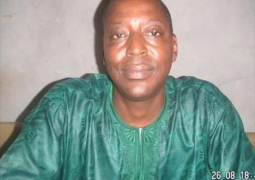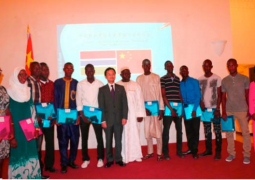The keynote statement delivered by the chairperson of the African Union at the just-held Malabo summit adequately captures why the focus on agricultural production and food security. We share the following extracts from the statement, for the information of our readers:
When the Union over a decade ago adopted the Comprehensive Africa Agriculture Development Programme (CAADP), it was with a view to eradicate hunger and rural poverty, to grow dynamic agricultural markets within and between African countries and regions, to become a strategic player in agricultural science and technology and become once again a net exporter of agriculture and food products.
To achieve this, we set ourselves the target of increasing investment in agriculture and to increase productivity. By 2003, many countries managed to increase and grow investments in agriculture and those countries have seen improvements not only in productivity, but also in tackling hunger and malnutrition.
As we, therefore, debate our theme for 2014, Agriculture and Food Security, we do so with a range of policies, programmes and initiatives in already place, at national, regional and continental levels towards meeting CAADP targets.
But we need to do more and to do it faster.
This includes increased public and private investments and implementation of irrigation projects so that our farmers are not always at the mercy of whether it rain or not.
It means targets to give women who toil the fields, access to land, capital and other agricultural inputs, so that they can move from being farmworkers towards producers and owners of agro-businesses.
It means mobilizing investments (public and private) into facilities that will stimulate agricultural markets, including energy, storage facilities, transport and lifting of restrictions on the movement of people and goods on the continent.
I have been told and have seen it myself in many of our countries that young people are not interested in agriculture and in careers in agriculture. This cannot be in a young continent such as our own.
It is however a reflection that our agriculture is in the main still traditional. A practical priority is therefore to modernize and mechanise, to use science and technology, and once and for all banish the hand hoe to museums, instead of it being the symbol of women farmers in Africa. In our recent consultations with Gender Ministers and women’s organisations, this message was strongly articulated.
We must make modern agriculture and agro-processing attractive to the younger generations, because our Green revolution needs their innovation and energy. Africa today does not train enough bio-scientists, agronomists, engineers and mechanics who can design and maintain agricultural technology, and the other critical skills required for the modernization of agriculture. We must address this as part of our skills revolution.
Amongst the country contributions we received on Agenda 2063 was from Nigeria, who proposed a target to encourage banks to lend at least 30% of agricultural lending to women. We think this is a progressive goal, we must support this and engage with our financial institutions across the continent to achieve it.
Modernisation and the use of science and technology will not only help to address productivity, but also build resilience against climate change.
The threat of desertification, the drying up of our lakes such as the Great Lake Chad and other extreme weather conditions, particularly affecting our island states cannot be left to chance.
We have already put in place the mechanism of the African Risk Capacity, to provide a collective risk buffer to our agricultural sector, but we need to do more in all these areas of threats.
Agriculture is critical in our industrialization efforts as well. Agro-processing of our agricultural products are not only critical to food security, but also to increased earnings, job creation and our broader goal of industrialization.
Finally, for agriculture and our environment to flourish, we need conditions of peace and stability, and for our people not to be under threat from armed gangs, terrorists and human and arms traffickers and from poachers.
“Agriculture is not crop production as popular belief holds - it’s the production of food and fiber from the world’s land and waters. Without agriculture it is not possible to have a city, stock market, banks, university, church or army. Agriculture is the foundation of civilization and any stable economy”.
Allan Savory




